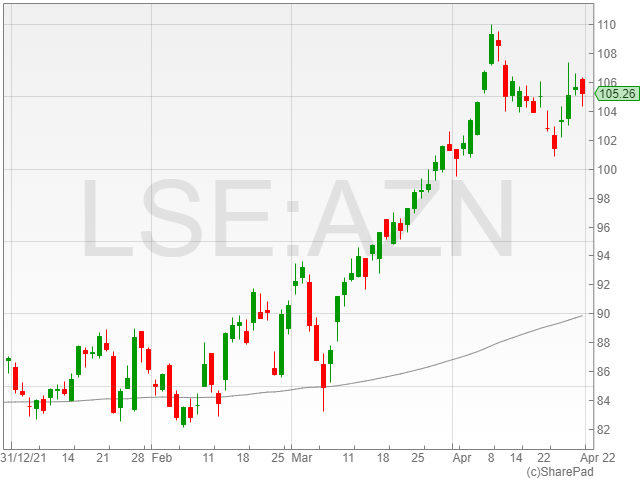AstraZeneca shares fell 0.3% to 10,522p in early morning trading on Friday, following the group’s reported 60% increase in revenue to $11.3 billion in Q1 2022.
The pharmaceutical company attributed its growth to the contribution of the Alexion medicines and multiple Vaszevria contracts, which are set to complete delivery by HY1 2022.
“AstraZeneca’s product portfolio’s had a boost from its Alexion acquisition and that’s helped the group surpass revenue expectations,” said Hargreaves Lansdown equity analyst Laura Hoy.
The firm highlighted a 25% in total revenue from oncology, with department product sales gaining 18%, a total revenue from cardiovascular, renal and metabolism (CVRM) rise of 18%, respiratory and immunology (R&I) enjoying a 4% boost and rare disease rising 7% across Q1.
Astra announced a core earnings per share increase of 20% to $1.89, and noted that its operating margin benefitted from phasing of costs.



However, Astrazeneca mentioned its EBITDA fell 16% to $2.2 billion, reporting below analyst expectations as a result of a $1.2 billion charge linked to the revaluation of Alexion’s inventory, alongside a 36% increase in research and development costs.
The group mentioned that core operating expenses were likely to increase by the low-to-mid teens percentage across the coming term due to costs including the full-year integration of Alexion expenses.
The firm estimated revenue from Covid-19 medicines would also decline by approximately 20-25%, with the gross margin from coronavirus treatments projected to be lower than the company average.
Astrazeneca added that its expected decline in Vaxzevria sales would probably be slightly offset by growth in Evusheld sales.
“2022 has started strongly for AstraZeneca. Farxiga achieved $1bn revenue in the quarter and our Oncology medicines delivered Product Sales growth of 18%, despite COVID-19 continuing to impact cancer diagnosis and treatment,” said AstraZeneca CEO Pascal Soriot.
“High-level results from the DESTINY-Breast04 trial pointed to Enhertu’s potential to redefine treatment of HER2‑low metastatic breast cancer, and Ultomiris became the first and only long-acting C5 inhibitor approved for generalised myasthenia gravis in the US.”
“Our investments in pioneering science give us confidence of further advances in the years to come.”





